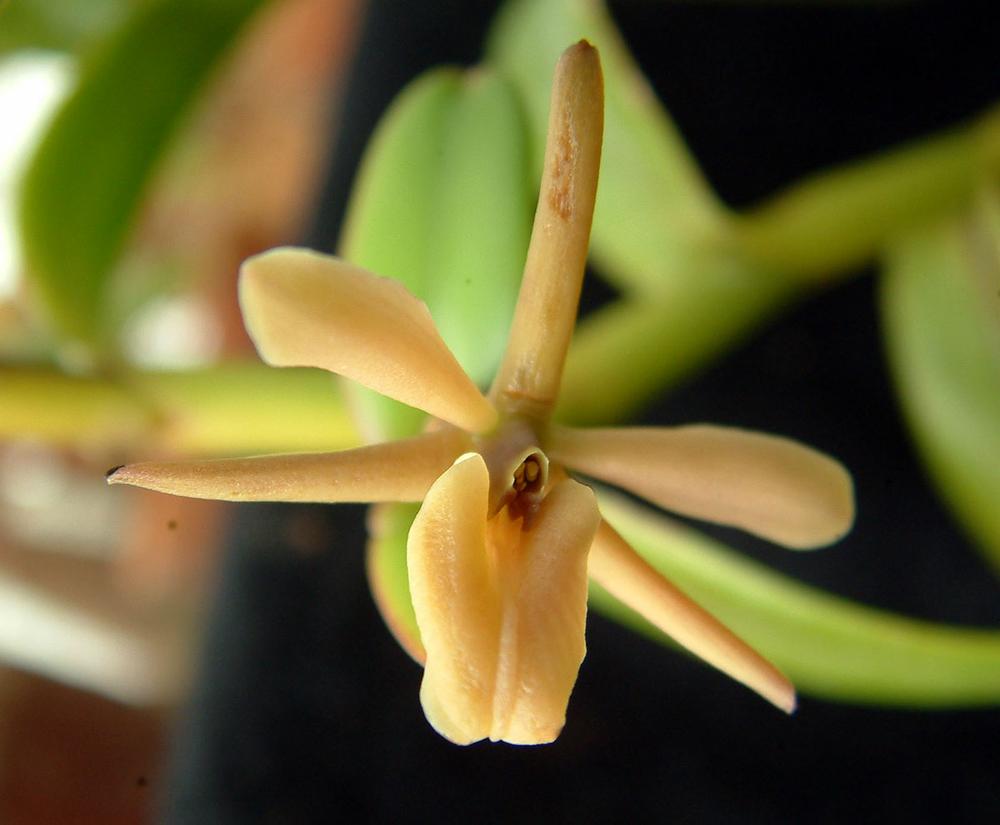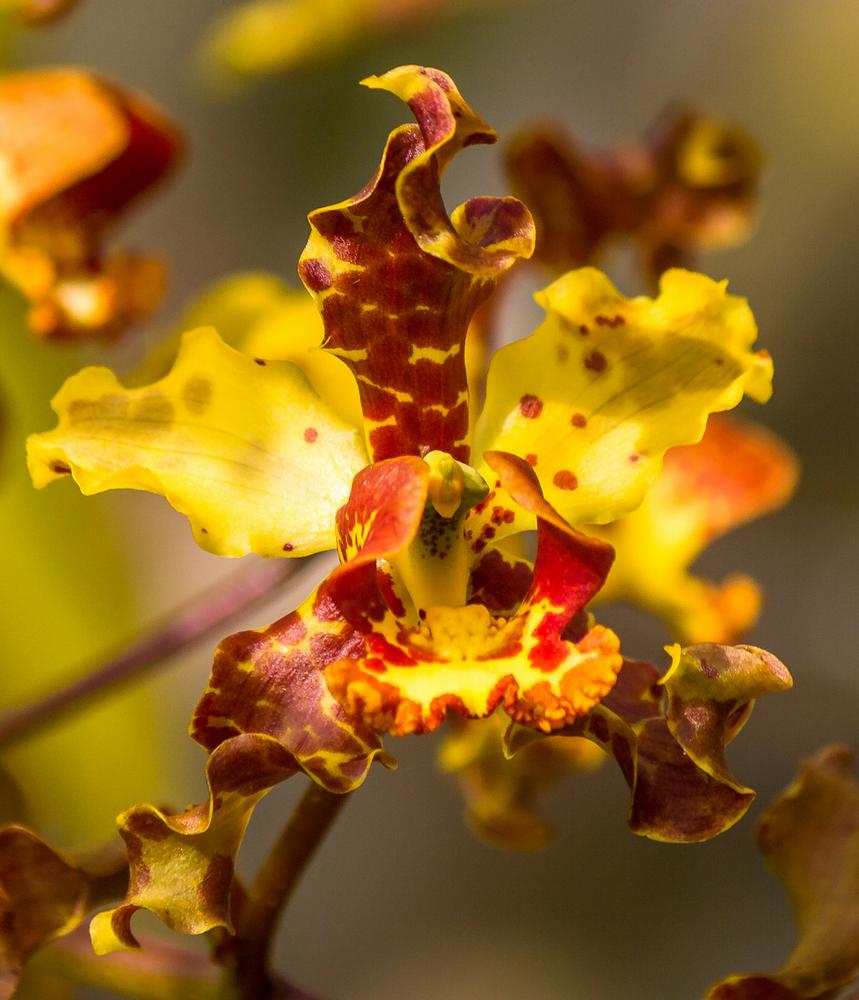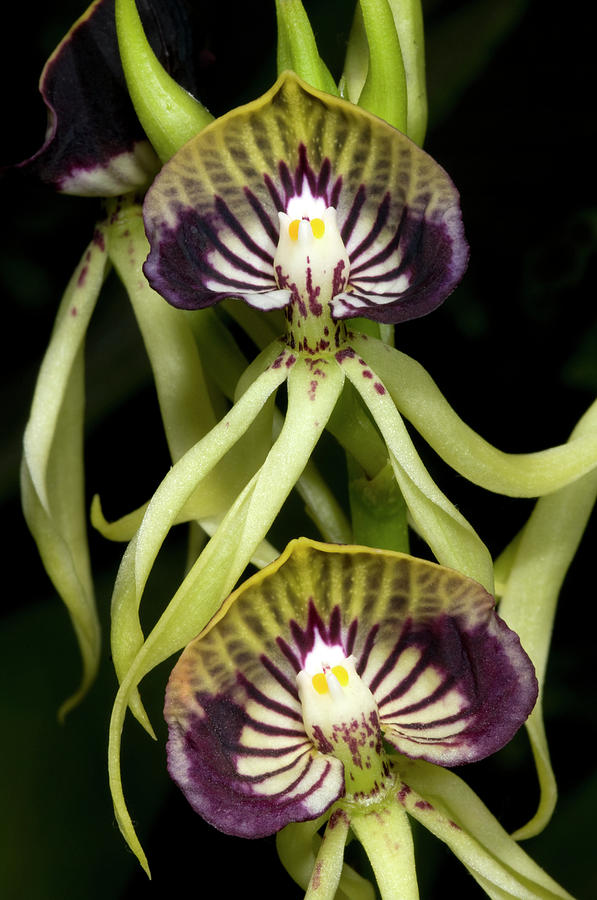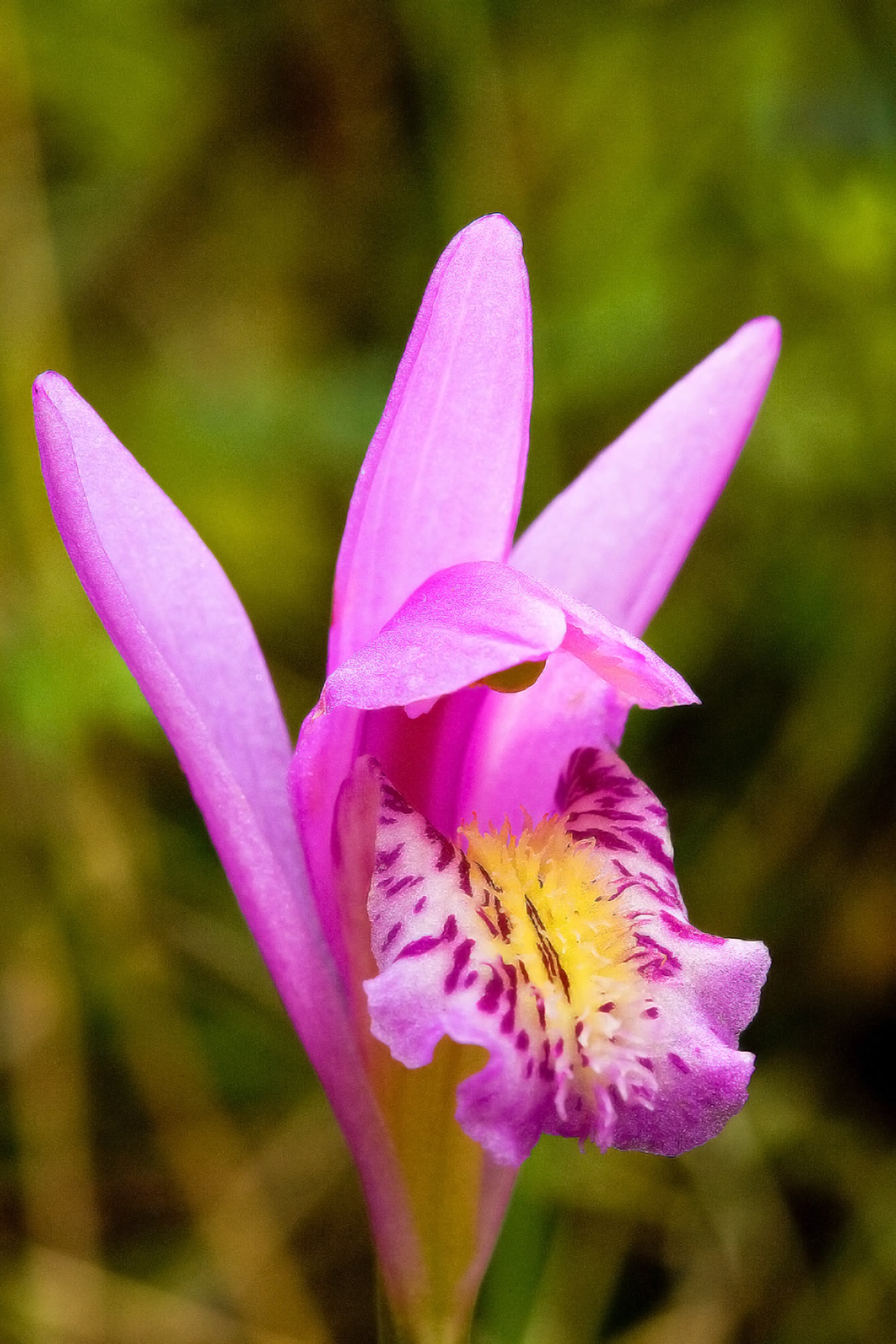𝐃𝐞𝐬𝐜𝐫𝐢𝐩𝐭𝐢𝐯𝐞 𝐛𝐚𝐜𝐤𝐠𝐫𝐨𝐮𝐧𝐝, 𝐨𝐟 𝐭𝐡𝐞 𝐨𝐫𝐜𝐡𝐢𝐝𝐬 𝐬𝐞𝐞𝐧 𝐢𝐧 "𝐑𝐞𝐝 𝐃𝐞𝐚𝐝 𝐑𝐞𝐝𝐞𝐦𝐩𝐭𝐢𝐨𝐧 𝟐"
This page will explain and describe the different orchids seen in the western-themed game Red Dead Redemtion 2. Them being based on real life, I took the liberty of documenting these orchids, specifying their scientific name, where they are native, their conservation status (IUCN Scale), and some other miscellaneous details.
𝐈𝐧𝐝𝐞𝐱
- Lady of the Nigth Orchid
- Lady Slipper Orchid
- Moccasin Orchid
- Acuna's Star Orchid
- Cigar Orchid
- Ghost Orchid
- Nigth Scented Orchid
- Rat Tail Orchid
- Clamshell Orchid
- Dragon's Mouth Orchid
- Sparrow's-egg Orchid
- Queen's Orchid
- Spider Orchid
In addition to those that appear on the official in-game collection list, there is the Vanilla Flower which is also an orchid.
𝐋𝐚𝐝𝐲 𝐨𝐟 𝐭𝐡𝐞 𝐍𝐢𝐠𝐭𝐡 𝐎𝐫𝐜𝐡𝐢𝐝

Brassavola nodosa, known as lady of the night, is an epiphytic orchid. It is found from Mexico, Central America, Colombia to Venezuela. Members of this species are easily reared in cultivation and are resistant to strong environmental changes, making them quite common. Its name refers to the fact that at night it emits a very strong citrus fragrance.

𝐋𝐚𝐝𝐲 𝐒𝐥𝐢𝐩𝐩𝐞𝐫 𝐎𝐫𝐜𝐡𝐢𝐝

Paphiopedilum fowliei is identified as critically endangered and only exists in one location. The Philippine Islands in the forests of the southeast side of Palawan Island. The entirety of the island on which it resides is a declared protected area.

𝐌𝐨𝐜𝐜𝐚𝐬𝐢𝐧 𝐎𝐫𝐜𝐡𝐢𝐝

Cypripedium parviflorum, commonly known as yellow lady's slipper or moccasin flower. Its found across virtually all of the United States and Canada, from Alaska to Georgia. Cypripedium parviflorum is considered globally secure and is common or widespread throughout much of its range.

𝐀𝐜𝐮𝐧𝐚'𝐬 𝐒𝐭𝐚𝐫 𝐎𝐫𝐜𝐡𝐢𝐝

Epidendrum acunae, commonly known as Acuna's Star Orchid, is distributed in the West Indies, Mexico, Central America. In Florida, it is known only from a single location within the Fakahatchee Swamp in Collier County. Epidendrum acunae is apparently secure across its range where it is reported to be widespread but uncommon.

𝐂𝐢𝐠𝐚𝐫 𝐎𝐫𝐜𝐡𝐢𝐝

Cyrtopodium punctatum, is a stunning epiphytic wildflower that
occurs in swamps and coastal uplands in South Florida. In the 1940s, healthy populations of this orchid were nearly decimated in Florida through loss of habitat and harvesting by collectors.

𝐆𝐡𝐨𝐬𝐭 𝐎𝐫𝐜𝐡𝐢𝐝

Dendrophylax lindenii, the ghost orchid is a perennial epiphyte from the orchid family. It is native to Florida and Cuba. The species is endangered in the wild, and cultivation has proven exceptionally difficult. This orchid is listed in Appendix II of CITES and is fully protected by Florida state laws, which forbid its removal from the wild.

𝐍𝐢𝐠𝐭𝐡 𝐒𝐜𝐞𝐧𝐭𝐞𝐝 𝐎𝐫𝐜𝐡𝐢𝐝

Epidendrum nocturnum, the Night Fragrant Epidendrum, is the largest-flowered and most distinctive species of Epidendrum found in Florida and occurs in the West Indies, Mexico, Central America and northern South America. This plant is apparently secure across its range.

𝐑𝐚𝐭 𝐓𝐚𝐢𝐥 𝐎𝐫𝐜𝐡𝐢𝐝

Dendrobium teretifolium grows in tropical rainforest and open moist woodland, it is native mainly to eastern Australia, New Guinea and some Pacific islands. Most species are hardy plants in the wild, so their is no concern over their population.

𝐂𝐥𝐚𝐦𝐬𝐡𝐞𝐥𝐥 𝐎𝐫𝐜𝐡𝐢𝐝

The Clamshell Orchid is a striking epiphytic orchid found in moist forests, woodlands, and swamps of southern Florida, Mexico, the West Indies, and Central and South America. Unfortunately, the plant population has been decimated by poachers and habitat destruction.

𝐃𝐫𝐚𝐠𝐨𝐧'𝐬 𝐌𝐨𝐮𝐭𝐡 𝐎𝐫𝐜𝐡𝐢𝐝

Arethusa bulbosa, commonly known as Dragon's Mouth, is found in eastern and central United States and Canada, from South Carolina to Saskatchewan. This orchid is considered apparently secure, although it is endangered or threatened throughout much of the eastern United States.

𝐒𝐩𝐚𝐫𝐫𝐨𝐰'𝐬-𝐞𝐠𝐠 𝐎𝐫𝐜𝐡𝐢𝐝

Cypripedium passerinum, commonly known as the Sparrow's Egg Lady's Slipper, is found throughout the interior of Alaska, across Canada to Hudson Bay, and south to northern Montana. C. passerinum is an extremely rare plant and is at risk of becoming extinct. Its highly specific habitat requirements contribute to its risk of extinction.

𝐐𝐮𝐞𝐞𝐧'𝐬 𝐎𝐫𝐜𝐡𝐢𝐝

Cypripedium reginae, also called Showy Lady's Slipper, is distributed through eastern and central Canada and the U.S., from North Carolina to Saskatchewan. This plant is quite rare, and its increasing rarity is attributable to the destruction of a suitable alkaline habitat.

𝐒𝐩𝐢𝐝𝐞𝐫 𝐎𝐫𝐜𝐡𝐢𝐝

Brassia caudata, commonly called the Spider Orchid, occurs in Mexico, West Indies, Central and northern South America and Florida. This plant is vulnerable throughout its range.

𝐕𝐚𝐧𝐢𝐥𝐥𝐚 𝐅𝐥𝐨𝐰𝐞𝐫

Vanilla planifolia or Commercial Vanilla, is native to Mexico, Central America and the West Indies and is the primary source for vanilla flavoring. This orchid has been cultivated for centuries and naturalized in many areas of the tropics, However, due to its erratic nature of seed germination, the most viable way for the plant to reproduce is asexually (vegetative growth), making difficult to propagate it on a large scale.
